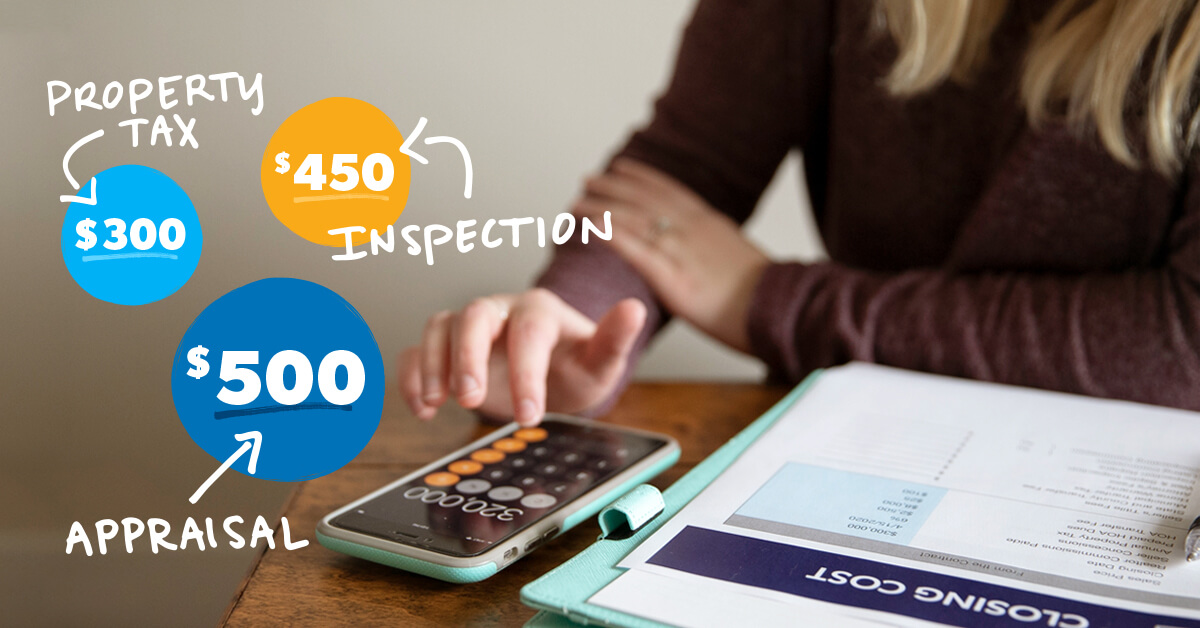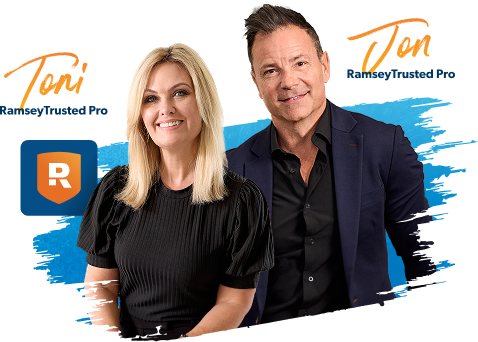Closing Costs: What Are They and How Much Will You Pay?
9 Min Read | Mar 21, 2025

Buying a house can feel like a long slog. From the viewings to getting your ducks in a row through to closing day, it can all feel pretty stressful. And then there are the closing costs.
Wait a second. What closing costs? These fees can be a nasty surprise if you’re not up to speed—especially if you’re new to it all as a first-time buyer.
But don’t worry. We’ve covered everything you need to know about closing costs including who and what you’ll be paying on closing day, whether you’re the buyer or the seller. Let’s get started!
What Are Closing Costs?
Simply put, closing costs are the fees the buyer and seller of a home pay to various third parties on closing day to finalize the deal.
If you’re the buyer, closing costs check off two boxes: fees that have to do with owning your new home and fees that go to the folks who are lending you all that cash to buy it! What you pay in closing costs depends on a few different factors like the state where you’re about to buy a home and the fees set by your mortgage lender.
If you’re the seller in this deal, your closing costs will cover (among other things) the fee to transfer the title of the house to the buyer and the real estate agent’s commission. More on that later.
Who Pays Closing Costs?
It’s pretty typical for both the buyer and the seller to pay closing costs. The buyer usually pays more in closing costs than the seller (not counting the cost of a real estate agent). But there are some situations where the seller might offer to pay for some or all of the buyer’s closing costs to sweeten the deal.
How Much Are Closing Costs?
Not including the cost of an agent, buyers can expect to pay around 3–4% of the purchase price in closing fees, and sellers can expect to pay about 1–3%.1 Let’s see how that plays out in real numbers.
Closing Costs for a $300,000 House
|
Who Pays |
Percent of Home Price |
Dollar Amount |
|
Buyer |
3–4% |
$9,000–12,000 |
|
Seller |
1–3% |
$3,000–9,000 |
Keep in mind that closing costs vary from state to state. Each state has its own laws concerning real estate deals and property taxes. For example, closing costs in New York and Connecticut are usually higher than those in Kentucky or Pennsylvania.
Types of Closing Costs for Buyers
Closing costs don’t have to be a surprise if you know what to expect. Here are the main types of closing costs you’ll come across when you’re buying a house.
Home Inspection Fee
A home inspection costs about $300–500, depending on the size of the house.2 You should get this one out of the way before closing day. A home inspector checks the condition of the entire house and flags any issues so you can raise them with the seller. Then they’ll make the agreed-upon repairs before closing day.
Application/Processing Fee
Loan application fees typically cost a few hundred dollars, but can vary greatly depending on your lender. This fee covers the cost to your lender for processing your mortgage application. It may also deal with things like running a credit check and pulling your credit score, along with other processing jobs.
Origination Fee
A loan origination fee generally costs about 1% of the total amount of the loan. Mortgages come with lots of paperwork! An origination fee covers the lender’s costs of creating a mortgage for you and processing all that paperwork so you can get your loan in time. You also might have to pay loan level price adjustment fees in the form of a slightly higher interest rate.
Prepaid Interest on Your Mortgage
On closing day, you’ll pay the interest portion of your monthly mortgage payment, covering the period between your closing date and your first scheduled mortgage payment. Tip: Close toward the end of the month so you’ll only pay a few days’ worth of interest compared to a few weeks’ worth if you close at the beginning of the month!
Your Guide to Finding an Affordable Home You Love
Learn our simple, step-by-step process to make closing on the right home for you easier and less stressful.
Appraisal Fee
A home appraisal costs around $300–500.3 This is a fee to a third-party company to determine the value of the house you’re about to buy. They’ll make sure it isn’t wildly overpriced or underpriced in the current housing market.
Tax Service Fee
Don’t worry, a tax service fee probably won’t even cost you as much as a Benjamin. If not already covered in the application fee, you’ll pay for a third party to monitor your tax account and confirm that you pay your taxes on time and don’t have any unpaid taxes.
Private Mortgage Insurance
The cost of private mortgage insurance (PMI) is usually less than 2% of your annual loan balance, which gets split into monthly payments. You’ll have to pay PMI if your down payment is less than 20% of the home price. That’s why we recommend you put down at least 20%!
Find expert agents to help you buy your home.
In a nutshell, PMI is insurance that keeps your lender from losing money if you default on your mortgage and can’t keep up the monthly payments. On closing day specifically, you’ll pay one months’ worth of mortgage insurance up front.
Homeowner’s Insurance Premium
The average annual cost of home insurance is about $1,250.4 This one is required by law. And on closing day, you’ll pay to cover the first year of your home insurance premiums.
Property Taxes
Each state makes their own property tax laws, but they typically cost a little more than 1% of the home value per year.5 So if you buy a $300,000 house, you’ll probably pay more than $3,000 in property taxes annually. Keep in mind, if you buy a house in a state with high property taxes, you’ll pay more on closing day than average. And be prepared to pay a few months’ worth of property taxes up front. This (along with your payment for the home insurance) will be held in your escrow account.
Homeowners Association Fees
If you’re buying a home in a community with a homeowners association (HOA), you’ll pay a process fee to set up your membership on closing day. Then you’ll pay HOA fees to maintain your membership, which can cost around $250 per month—but can vary greatly depending on the neighborhood.6
Buyer’s Agent Costs
Sometimes, sellers offer to pay for the buyers’ agent as a way of sweetening the deal. That doesn’t always happen, though, so buyers should be prepared to foot the bill themselves. Luckily, before you begin working with an agent, you’ll sign an agreement that lays out exactly how—and how much—they’ll get paid.
Buy or Sell Your Home This Spring With Confidence
Now is a great time to buy or sell your home. Get ahead of the competition with help from a pro who’ll fight for you to get the best deal.
Types of Closing Costs for Sellers
Now, don’t think sellers get off any easier. Selling a house comes with closing costs too! The biggest chunk of your payment on closing day will be paying for your real estate agent.
Seller’s Agent Costs
Like we mentioned earlier, some sellers offer to pay for the buyer’s real estate agent as a way of sweetening the deal. But either way, you’ll at least be paying for your agent. Some agents charge a commission, others use an hourly rate, and others get paid a flat fee—you and your agent will agree on how they’ll get paid before they list your house.
Since this is one of the largest fees paid at closing, it can sometimes overshadow the seller’s other closing costs. Let’s cover those next so they don’t catch you off guard.
Transfer Tax Fee
The seller usually pays the costs of transferring the title of their home to the new owner. There may also be additional title fees or recording fees based on the title company. The cost depends on which state (and sometimes which country) you live in. In some states, there’s no transfer tax at all. In others, it’ll end up adding thousands to your closing costs.
Attorney Fee
If you’re selling your home and use an attorney to assist you, their fees will be due on closing day too. The cost varies depending on the attorney used.
When Will I Know How Much I’ll Pay for Closing Costs?
The good news is you won’t be slapped with a huge bill on closing day without any notice!
You’re actually given an estimate of your closing costs by your mortgage lender early on in a document called a loan estimate. The loan estimate also contains a breakdown of how much your mortgage payment will be every month and what it covers.
And then, at least three business days before closing, your lender is required by law to send you a closing disclosure.7 This form lists all the final terms of your loan (including closing costs) and the details about who pays and receives money on closing day.
It’s super important to look over the closing disclosure and compare it with your loan estimate. If something doesn’t match up, now’s the time to ask your lender why.
Make sure you’re working with a mortgage lender who takes the time to explain everything to you and answer any questions you may have. The mortgage experts at Churchill Mortgage can help you calculate the costs and show you how to purchase a home the smart way, saving the most money over the life of the loan.
Can I Save Money on My Closing Costs?
This is the question everyone wants answered! And if you don’t ask, you’ll never know! When you’re looking at mortgage lenders, why not ask them if there’s any wiggle room to reduce their closing fees?
And don’t feel shy about asking the seller, either. If they’ve been trying to sell their house for months and want a quick sale, you might get them to agree to pay a small fraction of your closing costs because you hold the upper hand in the deal.
Keep on Top of Closing Costs With a Real Estate Professional
Navigating the world of home buying or selling is complicated, especially when it comes to closing costs. But a qualified real estate professional will give you confidence at every step of the home process. For a quick and easy way to find the best agents near you, try our RamseyTrusted® program. The agents in our network have been vetted by our team to make sure they have high standards of customer service and excellence in the marketplace.
Did you find this article helpful? Share it!

We Hear You!
We’re considering adding the ability to save articles to your Ramsey account.




